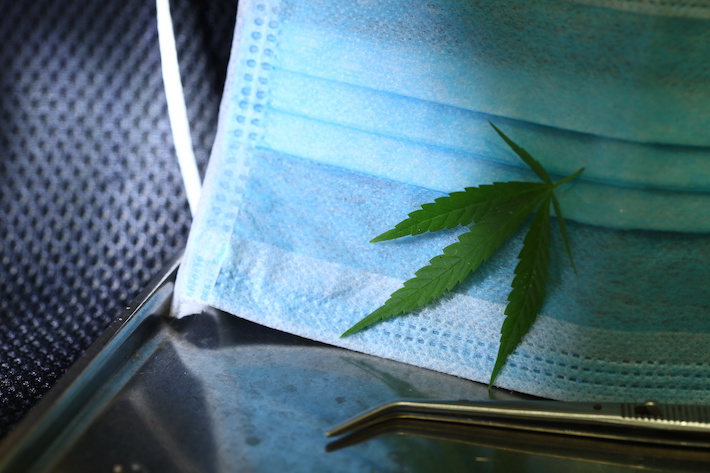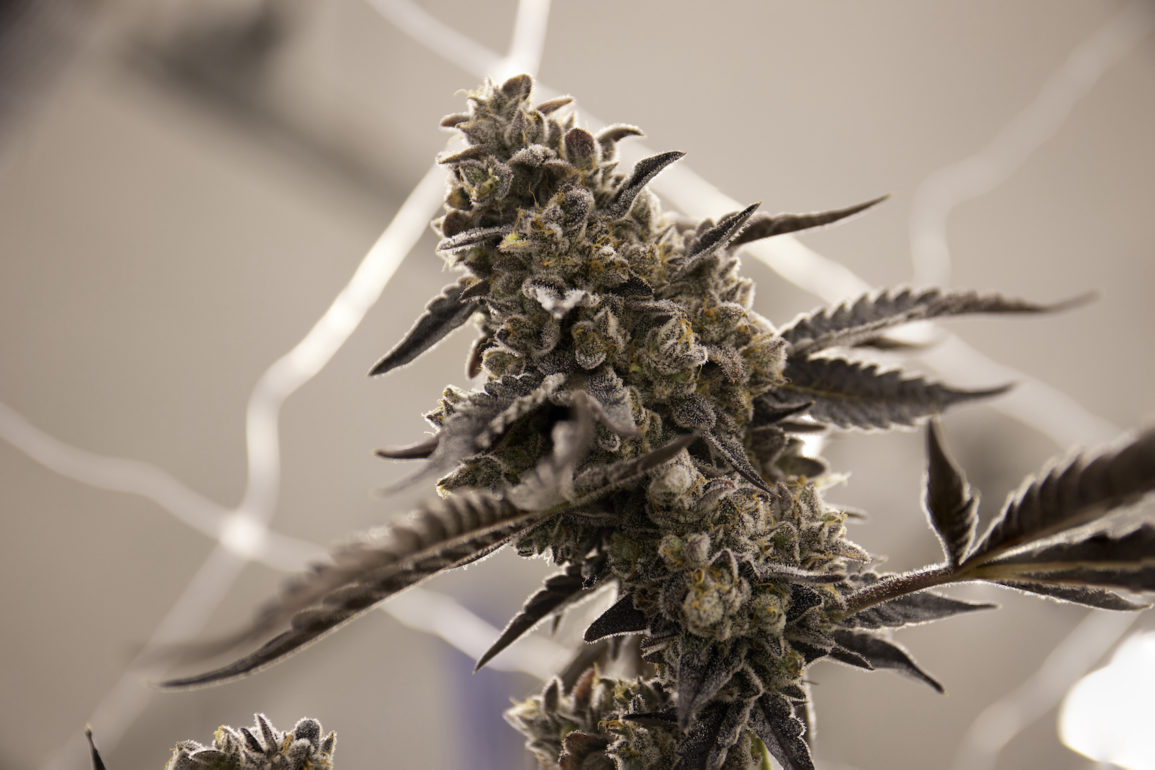Summary of cannabis research findings in 2021:
- 2020 was the year of cannabis for COVID-19 — looks like 2021 will be the same
- Researchers discovered cannabidiol (CBD) significantly reduced COVID replication in the lungs and widespread hyper-inflammation
- Research into delta-8-THC and other THC variants could gain more traction in 2021 — we’d like to understand more about their safety, benefits, and effects
- Medical cannabis for opioid abuse and increased quality of life — Canadian researchers discovered cannabis reduced opioid use from 28% down to 11%
- Cannabis for Parkinson’s disease (PD) — medical cannabis was reported to decrease PD-related pain and muscle cramping in 40% of patients
- Cannabis could be effective against treatment-resistant bacteria (superbugs) e.g. MRSA, legionnaires, meningitis, and gonorrhea
- The Medical Marijuana Research Act has passed the House of Representatives — seeks to make medical cannabis more accessible to licensed researchers
Cannabis + COVID-19 is the main focus (with already promising results)

A new year signals new research opportunities in the cannabis industry. In 2020, COVID-19 forced universities and laboratories to close amid health and safety fears, causing cannabis research to slow dramatically. Only a small handful of studies were conducted, mainly involving how cannabis can help treat symptoms of COVID, ironically enough.
These studies, however, were impressive and gave us a really promising insight into how cannabis (mainly CBD) can target COVID-19 and help remedy its symptoms.
And it pretty much started in Canada
One of the first and most notable in 2020 was a preliminary study conducted by the University of Lethbridge in Alberta, Canada. The researchers discovered two unique strains of cannabis had the potential to reduce COVID-related inflammation in a 3D lung model.
Many other research efforts followed suit, paving the way for more going into 2021.
CBD inhibits COVID-19 replication in human lung cells
Scientists at the University of Chicago believe CBD has the potential to inhibit COVID-19 infection in human lung cells. This is quite a remarkable discovery and really opens up the discussion surrounding CBD’s ability to help COVID-19 patients.
According to the pre-print version of the research paper published on the bioRxiv server March 2021, CBD and its 7-OH-CBD metabolite inhibited COVID-19 replication in human epithelial lung cells (epithelial meaning the outer surface tissue lining organs and blood vessels).
Why is CBD’s ability to inhibit COVID-19 replication so important?

CBD’s potential to inhibit the spread of COVID-19 in your lungs cannot be understated. The novel coronavirus and its proteins enter your cells via angiotensin-converting enzyme 2 (ACE2) receptors. These receptors are its entry point to your cells. Within hours, a single infected cell can produce tens of thousands of replicas, affecting other nearby cells in the process.
In an attempt to fight off the virus, your own body can be its worst enemy with good intentions. Cytokines (special proteins released by your cells) are also produced to fight off the virus and stop it replicating. If your body releases an excessive, uncontrollable number of cytokines (also known as a cytokine storm), hyper-inflammation can occur, causing widespread cell death and near-irreversible lung damage, ultimately leading to acute respiratory distress syndrome (ARDS).
The researchers discovered CBD can reverse cytokine production during late-stage infection, which is a miraculous discovery in itself.
The rise of delta-8-THC research in 2021?
Delta-8-tetrahydrocannabinol (delta-8-THC) is the talk of the town in and out of the cannabis industry. It’s the fastest-growing hemp-derived cannabinoid in the cannabis market. A very exciting delta-9-THC variant. Able to cause an enjoyable high without too many side-effects.
So, will the spotlight shine on delta-8 in 2021 given its sudden rise in popularity? We sure hope so. Not much is known about delta-8’s physiological or therapeutic benefits, at least not as much as CBD or delta-9. Only one delta-8 clinical trial attempt exists. Researchers looked into its potential effectiveness against chemo-related nausea but the study was terminated sometime before 2010.
Due to its growing popularity, Delta-8’s safety has, of course, been called into question (just like every other cannabinoid out there). While many articles and blogs out there claim positive things about its safety, others are skeptical.
Saying delta-8-THC is 100% safe is probable but not conclusively evidenced. Scientifically sound clinical research in 2021 and beyond will no doubt shine some light but we believe preliminary animal studies and anecdotal evidence isn’t really enough.
| Key Points |
| Delta-8-THC is a very exciting cannabinoid — one of the most popular hemp-derived cannabinoids currently on the market |
| Relatively little is known about delta-8-THC outside animal studies and anecdotal stories — only one clinical study attempt exists, was terminated before 2010 |
| Growing popularity = more concern over its safety among consumers, which is why controlled clinical trials are essential in 2021 |
The spotlight on other THC variants in 2021?
Delta-10-tetrahydrocannabinol (delta-10-THC)
Never knew delta-10-THC existed? Not surprising. It’s a relatively unknown variant of delta-9-THC with a very bizarre history.
During the Californian bush fires of 2020, firefighters attempted to extinguish the blaze with a fire retardant, which residually contaminated a number of cannabis farms in the nearby area. This contaminated cannabis was purchased by an up-and-coming Cali cannabis brand named Fusion Farms to make high-quality cannabis concentrates.
During the extraction and distillation process to remove all unwanted contaminants, the Fusion Farms team noticed something pretty damned remarkable.
Strange crystals began to appear. They looked like nothing the team had ever seen before. The crystals were put through rigorous testing and analysis until they realized the crystals were a form of artificially-made THC.
Currently, there are no studies for delta-10. Just loads of speculation. We’d like to see how this cannabinoid can work inside your body beyond educated guesses. Maybe we’ll see this in 2021.
Tetrahydrocannabiphorol (THCP)
Tetrahydrocannabiphorol (THCP) is another THC variant making considerable waves in the cannabis industry. Discovered by a group of Italian researchers at the end of 2019.
Said to have 33 times stronger binding affinity with your CB1 receptors than delta-9-THC. Researchers believe its physiological and therapeutic advantages could be as useful (if not, more so) than delta-9. THCP samples were tested on human cannabinoid receptors in a controlled environment, causing increased hypermobility and pain relief.
That’s all we currently know about THCP. We’d like to see more research on this cannabinoid to get a fuller understanding of its potential on a medicinal level.
Δ9– tetrahydrocannabihexol (THCH)
Δ9– tetrahydrocannabihexol (THCH) is the mystery THC variant. Discovered by the same Italian researchers who found THCP a year prior. Very little is known about how it can benefit you, your mind, or your body. The researchers were unable to extract a sufficient sample for testing.
However, THCH bears some semblance to a synthetic THC homolog—parahexyl (n-hexyl-Δ3-THC)—accidentally created by scientists in the 1940s. This homolog is known to be intoxicating, binding quite efficiently to your CB1 receptors. Widely prescribed for anxiety and anxiety-related disorders throughout the 20th century until it was made illegal and placed under Schedule I of the Controlled Substances Act (CSA).
It’s too early to tell whether THCH has the same qualities, which is why we’re keeping our Oracle eye out for any research in the next coming year.
Medical cannabis to stem the opioid crisis in the US and Canada?
There’s an opioid epidemic happening in the US and it’s overflowing. Over 450,000 people died from an opioid overdose between 1999 and 2018. Out of over 300 million people, that’s more than 1% of the population over the course of roughly 20 years. Let that sink in for a moment.
Across the border in Canada, a similar epidemic continues to plague the country. Prescription opioid pain-killers were used by approximately 4.5 million people (12% of the population) in 2020. British Colombia was the worst-affected province with over 900 opioid-related deaths.
Even more startling, the US and Canada have witnessed a combined 14-fold increase in prescription opioid use over the course of 20 years.
Could medical cannabis be the solution?
A group of Canadian researchers believes so. In a prospective study of 1,145 medical cannabis patients, they discovered:
- A significant drop in opioid use (28% down to 11%) over the course of six months, as well as an increase in overall quality of life (physical, mental, and social improvements).
- A decrease in daily opioid usage — 152-milligram morphine equivalent (MME) down to 32.2 MME
- A decline in non-opioid pain, antidepressant, and anti-seizure medication use.
| Key Points |
| The US and Canada have experienced an opioid crisis for over 20 years — a 14-fold increase combined |
| 1,145 medical cannabis patients studied — was shown to reduce opioid use from 28% down to 11% over six months |
| Medical cannabis also increased quality of life — physically, psychologically, and socially |
Medical cannabis for Parkinson’s disease
Parkinson’s disease (PD) is a cruel and oftentimes unrelenting neurological disorder affecting over 60,000 people in the US each year. There is currently no cure, though treatments can reduce symptoms with varying levels of success.
In Germany, 1,300 members of the German Parkinson Associated were presented with a survey on the use of medical cannabis to reduce symptoms. The results were very surprising.
Over 40% of respondents reported medical cannabis caused a reduction in muscle cramping and helped manage pain and pain-related symptoms. A further 20% reported a decrease in anxiety, depression, restless legs, and akinesia (loss of movement). Varieties of cannabis with higher THC levels likely to be more effective in targeting muscle stiffness and akinesia.
With positive results like these, the authors suggest controlled clinical trials are needed to determine cannabis treatment efficacy and safety with greater accuracy. Such trials don’t exist right now. Hopefully, this survey will help push for better research going into 2021.
The powerful antibiotic (and anti-gonorrhea) potential of CBD in 2021
Australian researchers uncovered something groundbreaking in 2020. In a collaborative research effort between The University of Queensland and Botanix Pharmaceuticals Ltd, scientists discovered synthetic CBD is able to tackle combat treatment-resistant bacteria (superbugs) responsible for meningitis, legionnaires, Methicillin-resistant Staphylococcus aureus (MRSA), and gonorrhea.
This, in itself, is almost revolutionary in the worlds of cannabis and modern medicine. Bacteria are becoming stronger and more immune to advanced antibiotics.
According to the study’s author, almost all big pharma companies are abandoning antibiotic research. Smaller biotech companies are left with the burden of finding new ways to fight bacteria, often leaving them struggling financially.
The discovery of a synthetic type of CBD to effectively combat stubborn bacteria is, therefore, a game-changer for biotech companies on the whole. It’s also huge news for Australia, which has experienced a near-epidemic level of gonorrhea in the country. In fact, it’s the country’s second-most common sexually-transmitted disease in the country (behind chlamydia).
In 2021, we’ll see the launch of phase 2a clinical trials, which will give scientists a clearer picture of how this form of CBD can be used in the future.
| Key Points |
| An Australian collaborative effort between The University of Queensland and Botanix Pharmaceuticals Ltd showed synthetic CBD may combat treatment-resistant bacteria (superbugs) |
| Treatment-resistant bacteria (superbugs) = meningitis, legionnaires, Methicillin-resistant Staphylococcus aureus (MRSA), and gonorrhea |
| This discovery is amazing for Australia — has been battling a gonorrhea crisis for decades |
| Phase 2a clinical trials to discover more about CBD’s ability to fight superbugs underway later in 2021 |
The US federal government, cannabis research, and where we go from here
When President Joe Biden and his administration made the White House their home, excitement in the cannabis industry was palpable. Was federal cannabis reform on the cards? This question was certainly on the lips of many, especially after Biden openly suggested decriminalizing cannabis and rescheduling it as a Schedule II drug, allowing easier access for research purposes.
Unfortunately, Biden’s past was (and still is) seemingly forgotten. He famously stated cannabis should not be legalized in the 1970s. He was an author and avid supporter of the 1994 Crime Bill, a bill that largely contributed to widespread drug-related incarcerations. He even said cannabis decriminalization would be a federal mistake as recently as 2010.
Now, in 2021, Biden as the poster boy for cannabis reform in some way or another looks less and less likely. Right now, he’s firing staff members for past cannabis use. This, in itself, indicates Biden’s inability to let go of his past anti-cannabis sentiments. Disappointing, to be honest. Hope, therefore, rests elsewhere.
The passing of a landmark medical cannabis research bill
At the end of 2020, the House of Representatives passed the Medical Marijuana Research Act, a bill sponsored by Republican Rep. Matt Gaetz, which will expand medical cannabis research and reduce bureaucratic hurdles.
The bill looks to:
- Make registration processes easier
- Reduce approval times
- Permit private manufacturing and distribution of medical cannabis for research purposes, making it easier for researchers to obtain medical cannabis e.g. via licensed cannabis dispensaries
The bill will allow more access to medical cannabis without heavily overarching bureaucracy and restrictions, allowing researchers to finally study cannabis without jumping through unnecessary and costly hurdles. It will also increase medical cannabis supply to legitimate researchers.


